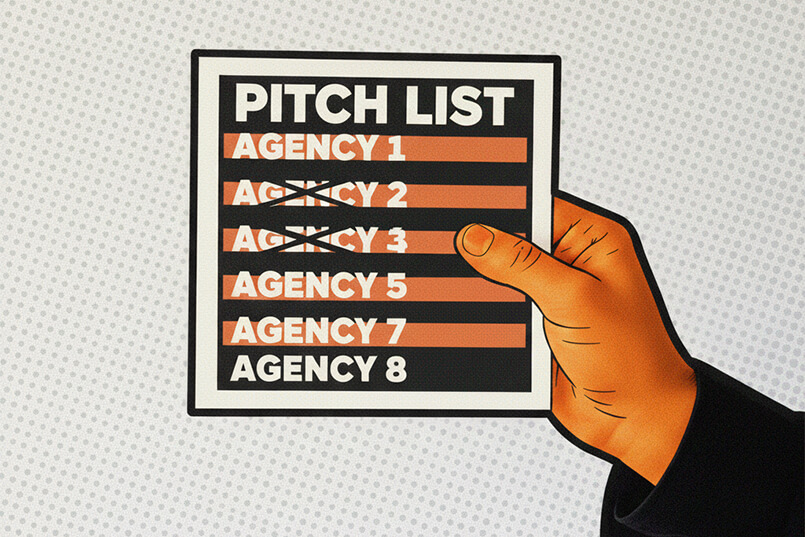When reviewing their agencies, many advertisers ask if they should include the incumbent in the pitch process? They usually express concern that if they do not then the incumbent will “drop the ball” on the account and that perhaps by including the incumbent in the process they can keep them in the process until the end and ensure their full focus and efforts throughout the process.
After all, some pitches are known to take 12 or 14 weeks and the really poorly managed ones can take much longer. This is a long time to have the business at risk, right?
Should you include the incumbent agency in a pitch?
The answer to this is relatively easy and based on the following:
1. Is it a review because the current relationship is significantly damaged?
In other words is the relationship dysfunctional or are you simply undertaking the review to fulfil some policy or business requirement? If the relationship is damaged to the point that you believe the incumbent would be unable to win a pitch it is probably best to not include them. After all you could be simply wasting their time and yours.
2. Has the incumbent been given several opportunities to improve?
If the relationship with the incumbent agency is damaged or dysfunctional you need to assess if it is beyond repair.
Mind you, a pitch is not a relationship therapy process. If you believe that the relationship can be remedied then this would need to be undertaken before a pitch could proceed.
Therefore if the relationship has had a number of attempts to address the issues and these have proven fruitless, it is probably best not to include the incumbent as it is unlikely they will be able to address any issues effectively during the pitch.
3. Does the incumbent have no chance of being successful?
If the incumbent has no chance of success due to either poor performance or the fact that the requirements of the marketer have changed and the incumbent does not have these capabilities then including them is pointless.
The only reason to include the incumbent in the situation of changing requirements is to test the quality and depth of these new skills against the market. But you would only do this if the alternatives are unknown.
4. Has the incumbent demonstrated poor professional integrity?
Concerns about the agency’s behaviour if not included in the tender can be minimised if you follow the advice of Dr Phil who said “the best predictor of future behaviour is past behaviour”.
Therefore if the agency has always demonstrated a high standard of professional integrity then as long as you continue to treat the agency professionally it is likely they will continue to perform the same way and therefore there is no risk associated with not including them in the pitch.
I have never known an incumbent agency to disrupt the pitch process or the transition to the new agency if they are treated professionally and with integrity. The only time this has occurred in my experience is as a result of sustained poor behaviour by the advertisers leading up to the pitch or an agency with poor professional integrity.
If the agency has not demonstrated a high level of professional integrity there are other ways of managing the process to ensure their performance without wasting their time and yours by including them in the pitch process.
If you answer YES to each of these questions then you should consider not including the incumbent in the review process.
Why you should not include the incumbent
1. It is a waste of their time and their resources will be further diverted from your business.
Pitches are time and resource consuming for both marketers and the agencies involved. Even if you have scheduled the pitch to be undertaken at a time when there is less or less critical time in the marketing plan, it will still divert the incumbent agency’s resources away from their contracted tasks, especially if agency staff begin to leave perceiving the review will be unsuccessful for the incumbent.
2. Including them in the process will not ensure a smooth transition.
Even if you have included the incumbent in the process simply to ensure they maintain a focus on your business, ultimately there will be a time when you must terminate the relationship when they are ultimately unsuccessful. If they ever become aware of the ruse, you risk them taking some form of retaliation, especially during the critical transition phase to the new agency.
3. Including any candidate just to make up the numbers reduces your opportunity to find the best agency.
Adding the incumbent to the list of agencies under review is simply replacing a potential new agency with one that has no chance of success. What if they are replacing the one agency that could be the perfect alternative? The risk does not outweigh the reward.
Other strategies that work better
There are better strategies for managing the incumbent rather then including them in the pitch process and they are:
1. Brief the incumbent on the process and plan the transition up front.
If the agency has demonstrated a high professional integrity, then we recommend engaging with agency management up front to explain why they are not included and to provide a timeframe and expectation of their performance throughout the pitch process. In treating the incumbent as a professional they will always respond in kind.
2. Consider paying a bonus termination payment to the agency for successful transition.
If there are question marks over the incumbent agency’s professional integrity, then you should consider providing a termination bonus, along with the agency’s final payment if they comply with the marketer’s expectations during the pitch process in regards to the current work and the transition to the new agency. You can also offer this bonus to the incumbent in the first option. One way is to delay the common 90 day notification so that the final contract payment falls post the transition and is made subject to successful completion.
3. Allow a longer transition period to allow the incumbent to manage resource redundancies.
Some contracts provide 30 days notice, other sixty days and others 90 days. While many marketers would like this to be as short as possible it is advantageous to the incumbent agency to have more time to manage redundancies and redeployment of staff. Rather than running the incumbent at full capacity to the end of the contract, you would agree a scaling down of requirements and the associated fees over a longer period of time and likewise negotiate a ramp up with the new agency.
Do you include the incumbent or not?
It does not seem too difficult. But it is amazing how many people struggle with this.
You need to make the decision based on what is ultimately best for the business. But that also includes what is best for the incumbent and also the new agency to be appointed.
The usual best practice is simply professional practice and not playing games or demonstrating a lack of integrity by lying to the incumbent.
Simple, really.
To find our how TrinityP3 Marketing Management Consultants can help you further with this, click here.




